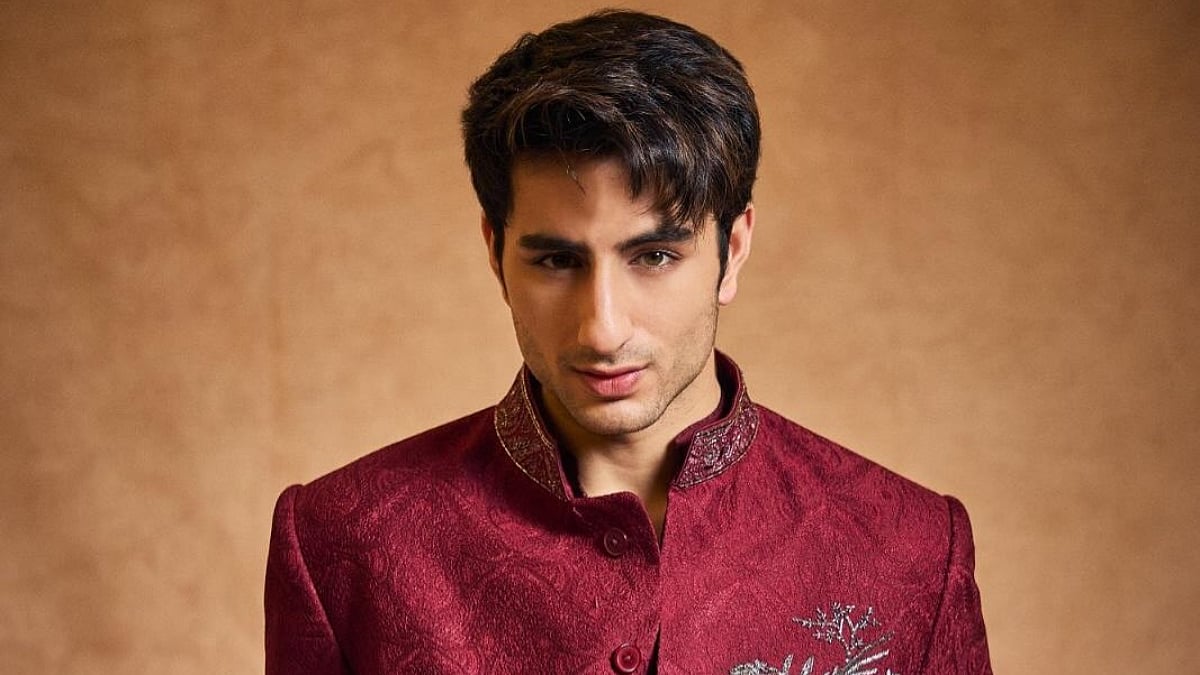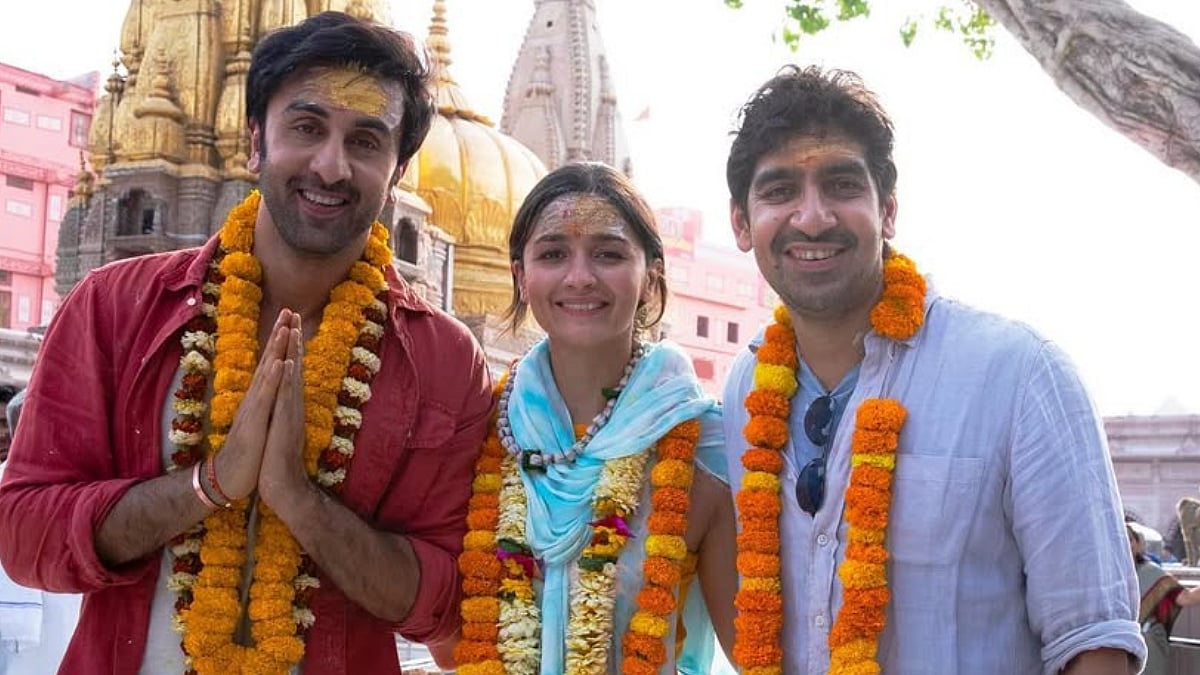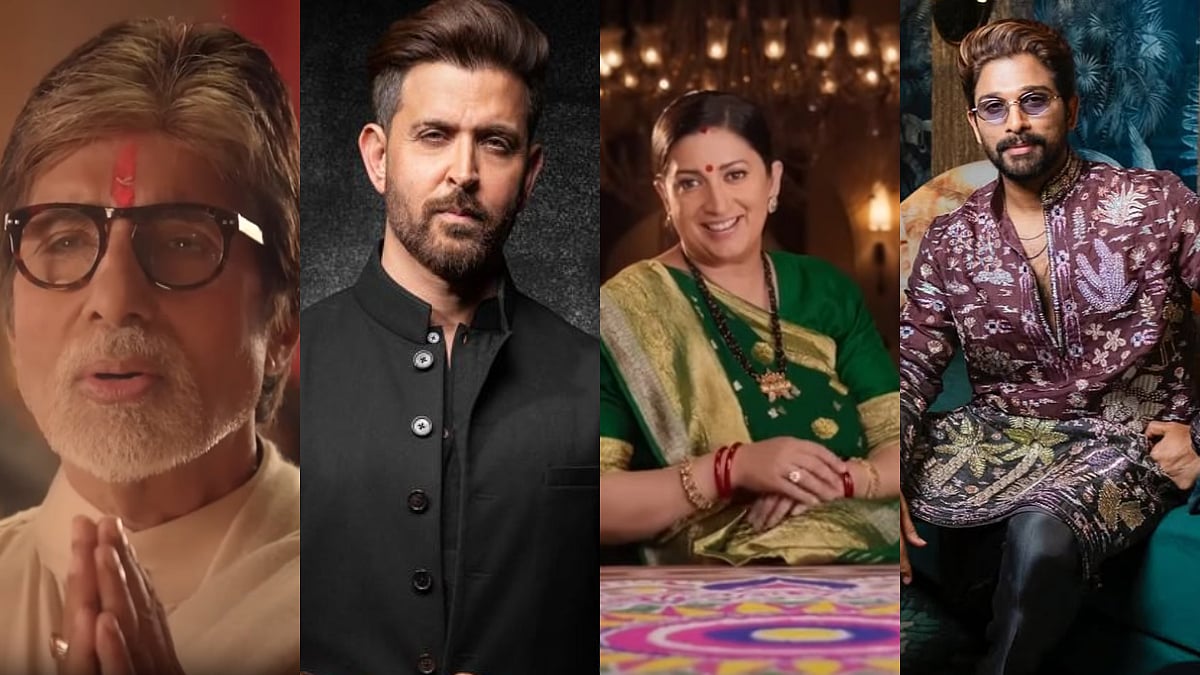Kali ghata chhaye mora jiya tarsaye that’s the song Joy picks from Sachin Dev Burman’s album for his father Bimal Roy’s 1959 film, Sujata. And the reason he chooses this one over the more favoured Jalte hain jiske liye is because it leaves him feeling happy rather than teary, watching Nutan yearn for Sunil Dutt with blushing anticipation. Nutan’s at one with nature as she flits around the garden, amidst the blooms and shrubs swaying in the wind, the clouds floating in the sky without the gloom of an impending storm despite the clap of thunder at the beginning of the song.
Joy reels back to a holiday in Ooty with his parents in 1963 — “one of those rare vacations with Baba who went away too soon” — when as an eight-year-old boy he had visited the singer-composer, who coincidentally was holidaying in Coonoor with his wife, Meera. “They were sitting on the lawn and we joined them there. I used to sing often back then though I had not gone through any kind of training. Baba asked me to sing a song for them. Mora gora ang lai le... was what I chose,” recounts Joy.
It was one of Dada Burman’s compositions from his father’s last film, Bandini, which had just been released. Joy admits that, in retrospect, he thinks he unconsciously opted for this song over the heart-breaking Ab ke baras bhej bhaiya ko babul because Mora gora ang lai le, again picturised on Nutan, had the same bashful expectancy and bewitching charm of Kali ghata chhaye.
Before you can even ask the obvious question, Joy quips, “No, I don’t remember Sachin Jetha’s reaction. Like Baba, he didn’t speak much. In fact, looking at them, sitting quietly together, Sachin Jetha chewing paan, I often wondered how they communicated. But it’s obvious they did, going by the gems they produced together. Mora gora ang remains one of my all-time favourites.”
Mitwa lagi re yeh kaisi, another evergreen SD Burman composition, also ranks high on his playlist. A Dilip Kumar soliloquy, sung by Talat Mahmood for Devdas, like many of Dada Burman’s songs, this one too is steeped in sadness. “But then, Devdas, like Bandini, is a sad film,” sighs Joy.
His father kept the family far away from the film industry, but there was one occasion when Joy went with his mother to Dada Burman’s residence. “Maa and Meera Jethima were good friends,” he explains. During that visit, he managed to get a glimpse of the composer’s music room where rehearsals were on. “There were no chairs, only a gadda (mattress) on a slightly raised dais. Everything in the room was white, including the sheet that covered the mattress on which Sachin Jetha sat,” Joy flashbacks.
Sachin Dev Burman was born on October 1, 1906, to Rajkumari Nirmala Devi, the princess of Manipur, and Rajkumar Nabadwip Chandra Dev Burman, the son of the Maharaja of Tripura. He went on to become one of the most successful composers in Hindi cinema. “Tall and fair, always dressed in white, finely pleated dhoti and a white adi (fine muslin) kurta with giley kora (crinkled) sleeves, he looked every inch the aristocrat that he was,” says Joy.
On that occasion, he was sitting cross-legged on the gadda, playing his harmonium. And even though Joy couldn’t have been more than eight at the time, he still hasn’t forgotten the sense of serenity and purity the room emanated. “It was pristine, like a temple, where Sachin Jetha produced the purest of music,” he breathes in awe.
Except for a brief period, Dada Burman did select work, which was why Joy had often wondered why he chose to record Nanhi kali sone chali late in the evening, given that Geeta Dutt, who sang the song for Sujata, was not as busy as her contemporaries, Lata Mangeshkar and Asha Bhosle. It was only later that Kamini Kaushal, speaking to Joy for his documentary, Remembering Bimal Roy, pointed out that if a scene was set at daybreak, his father would shoot it at dawn and if it played out at night, it was shot then, that he finally understood the reason.
“Since Nanhi kali sone chali was a lullaby, it was not only shot but also recorded late in the evening at Mumbai’s Bombay Lab for the right effect. I was around five then and it was way past my bedtime. As I sat on Maa’s lap, listening to the song in that hushed recording studio, I dozed off. I guess Sachin Jetha and Baba would have been gratified by my reaction,” he signs off with a laugh.











